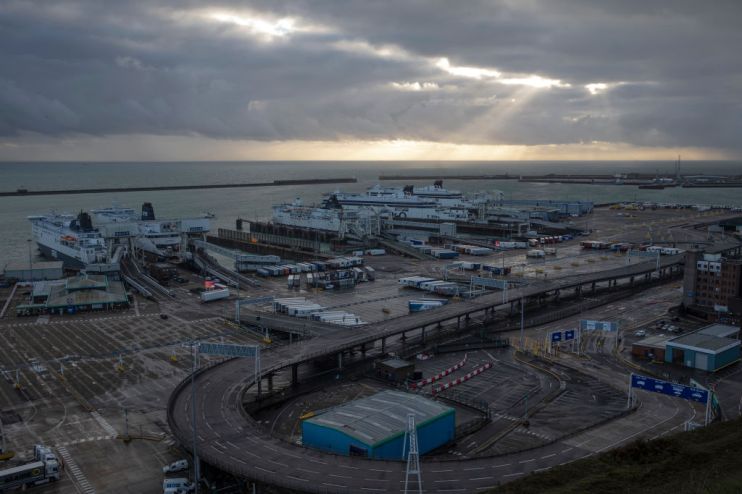Tested by Covid and Brexit, how have the UK’s borders coped over the New Year?

After a final frantic negotiating push, the UK and EU agreed a free trade deal in the run-up to Christmas, much to the relief of all concerned.
However, despite the deal being done, many were convinced that the New Year would see chaos across the UK’s ports and airports as travellers, businessmen and hauliers all try to adjust to the new rules.
Added to this, a rapid rise in Covid cases in the UK has led to calls for the UK to shut its borders immediately to stop the spread.
City AM checks how it’s going so far.
What’s going on at the UK’s ports?
In a word, not a lot. One of the government’s greatest fears in the run up to Brexit was that the change of customs rules would lead to massive disruption at ports such as Dover, through which much of the UK’s trade with the EU flows.
Before Christmas, a combination of stockpiling and extra demand led to gridlock at the UK’s ports, with many container ships skipping the UK altogether to avoid the disruption.
The situation was worsened by a surge in new coronavirus cases caused by a mutation of the virus, which led to EU countries shutting their borders to the UK, leaving hauliers stranded at ports for several days as a result.
However, a deal was soon struck to reopen borders and the backlog has been removed.
Since 1 January, when the UK began its life outside the EU, there have been very few problems reported at ports like Dover, with a minimum of drivers turned around for having the wrong paperwork.
However, there were some reports that hauliers have been instructed to avoid such routes for the next couple of weeks due to concerns over new customs requirements.
Are people being stopped from travelling to the EU?
Over the weekend there were a number of reports that British nationals who live in the EU were being stopped from travelling back to their homes at airports.
On Saturday, nine Britons trying to return to Spain from London on Saturday were stopped from flying after being told at Heathrow that they did not have valid documents.
Before the Open: Get the jump on the markets with our early morning newsletter
Staff at airline Iberia said that their green residence cards – the old form of documentation – were no longer valid.
But yesterday both UK and Spanish officials confirmed that both the old green card and new TIE documents were valid, as long as passengers also had their passports.
Likewise, this afternoon the Independent reported that a number of passengers were stopped from entering Sweden upon arriving in Gothenburg.
Despite having valid documentation and having recorded negative Covid tests, the group were held at the airport by police.
British ambassador to Sweden Judith Gough told the Independent that she was “very concerned” by the incident.
However, it is understood that the incidents are isolated. City AM has contacted the Foreign Office for comment?
Is the UK going to shut its borders?
With England expected to be put under further restrictions later tonight, a rising number of voices have suggested that all international travel be banned to prevent the further spread of the coronavirus.
Most prominent among these voices was Jeremy Hunt, who proposed the step as part of a number of measures to address the worsening situation.
In addition, it was reported that some ministers have been arguing for total travel ban and the closure of all airports, or at least testing for new arrivals at airports, in order to stop the import of new Covid cases.
Under the current tier system, even people subject to the most severe rules are able to travel abroad if they are permitted to do so for work purposes.
But that could change tonight, with Boris Johnson set to update the nation on the latest restrictions.